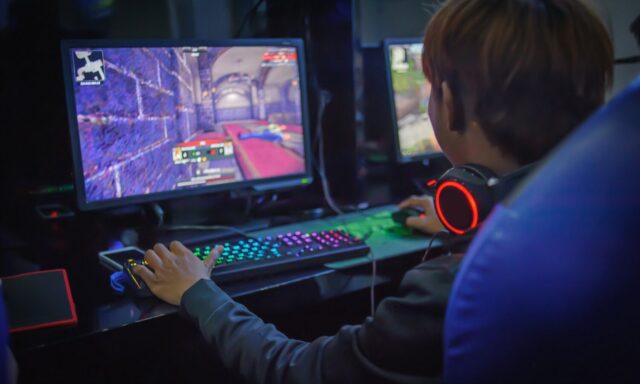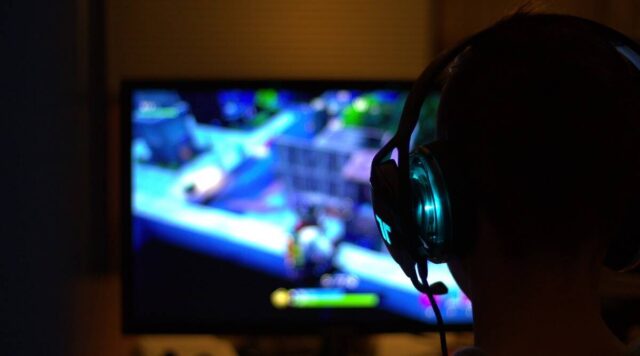
Online gaming has become a popular and immersive form of entertainment, offering players a virtual world filled with excitement and adventure. However, behind the veil of anonymity, a darker side of online gaming exists. Cyberbullying and toxic communities have emerged as significant challenges that tarnish the gaming experience for many individuals.
In this article, we will shed light on the dark side of online gaming, exploring the impact of cyberbullying and toxic communities while highlighting the importance of creating a safer and more inclusive gaming environment.
Cyberbullying in Online Gaming

Cyberbullying, the act of harassing or intimidating others through electronic means, has unfortunately found a breeding ground in online gaming communities. The competitive nature of multiplayer games can fuel hostility and aggression, leading some individuals to resort to demeaning, offensive, or threatening behavior towards fellow players. The relative anonymity provided by online gaming platforms can embolden cyberbullies, as they believe they can escape consequences for their actions.
The consequences of cyberbullying are far-reaching. Victims may experience emotional distress, anxiety, depression, and a decline in their overall mental well-being. It can also deter individuals from fully engaging in online gaming or even cause them to abandon the hobby altogether. The detrimental effects of cyberbullying highlight the urgent need for measures to combat this pervasive issue.
Toxic Communities and Their Impact
In addition to cyberbullying, toxic communities within online gaming pose a significant challenge. These communities consist of players who exhibit toxic behavior, including verbal abuse, harassment, and discrimination based on factors such as gender, race, or skill level. Such behavior not only creates a hostile environment but also discourages new players from joining the gaming community.
Toxic communities have a detrimental impact on players’ enjoyment and well-being. They can erode trust, foster negative emotions, and hinder opportunities for genuine social connections. Furthermore, toxic behavior often perpetuates a cycle of negativity, as players may adopt similar attitudes or behaviors in response to the toxicity they experience. Breaking this cycle requires a collective effort from developers, community managers, and players themselves.
Creating a Safer and More Inclusive Gaming Environment
Addressing the dark side of online gaming requires a multifaceted approach. Game developers and platform operators must implement robust systems to detect and penalize instances of cyberbullying and toxic behavior. This includes reporting mechanisms, stricter moderation, and community guidelines that promote respect and inclusivity.
Players can also contribute to fostering a safer and more inclusive gaming environment. By actively condemning and reporting toxic behavior, players can help create a culture that does not tolerate harassment or discrimination. Additionally, reaching out to support and encourage victims of cyberbullying can make a significant difference in their well-being and overall experience.
Education and awareness are vital in combating the dark side of online gaming. Promoting online safety and digital citizenship among players, particularly younger individuals, can foster a sense of responsibility and empathy. Organizations, influencers, and gaming communities can collaborate to organize campaigns, workshops, and resources that educate players about the impact of cyberbullying and toxic behavior.
The Rise of Cyberbullying: A Threat to Online Gaming Communities

Online gaming communities are increasingly concerned about cyberbullying, which poses a serious risk to players’ enjoyment and well-being. The highly competitive nature of online games and the anonymity offered by virtual platforms have produced a setting where people may act in an unpleasant, harassing, or threatening manner towards other people. This topic explores the emergence of online bullying, highlighting its effects on players and the critical necessity for strong defenses.
A Breeding Ground for Harassment and Discrimination

Online gaming has developed toxic communities, which are marked by gamers that indulge in verbal abuse, harassment, and discriminatory behavior. In addition to fostering a hostile climate, these communities deter new players from joining and properly appreciating the game experience. This subheading focuses on the significance of tackling this problem to foster a more welcoming and inclusive gaming culture by examining the negative effects of toxic communities on players’ well-being.
Combating Cyberbullying: Building Safer Spaces in Online Gaming

It is vital for game creators and platform operators to establish effective tools to identify and punish incidents of harassment in the fight against cyberbullying. This subcategory focuses on the actions that can be performed, like the implementation of methods for reporting incidents, stronger moderation, and the creation of community rules that encourage inclusivity and respect. Cyberbullying may be actively addressed, making online gaming a safer and more pleasurable experience for all gamers.
Promoting Inclusivity: Creating Welcoming Communities for All Players

Developers, community managers, and gamers themselves must work together to create an inclusive gaming experience. This subheading emphasizes how important it is to promote a climate that forbids harassment and discrimination. Players can help by openly denouncing toxic behavior, reporting it, and contacting victims to offer support and encouragement. Online gaming communities can become more friendly and fun for all participants by fostering respect and inclusivity.
Education and Awareness: Empowering Players to stand against the Dark Side

Combating the negative aspects of online gaming requires a strong focus on education and awareness. This subsection emphasizes the value of educating gamers, especially younger ones, about online safety and good digital citizenship. Campaigns, workshops, and resources that inform players about the effects of cyberbullying and toxic behavior can be organized with the assistance of collaborative efforts between organizations, influencers, and gaming communities. We can strive towards creating communities that value respect, generosity, and the joy of gaming by arming players with information and empathy.
Conclusion
While online gaming provides a platform for entertainment, socialization, and personal growth, it is crucial to acknowledge and address the dark side that accompanies it. Cyberbullying and toxic communities undermine the positive aspects of gaming, impacting the mental well-being and experiences of players. By implementing effective systems, fostering inclusivity, and promoting education, we can work towards creating a safer and more enjoyable gaming environment. Let us stand together, combat cyberbullying, and cultivate communities that embrace respect, kindness, and the joy of gaming.








